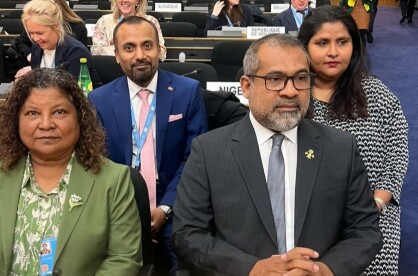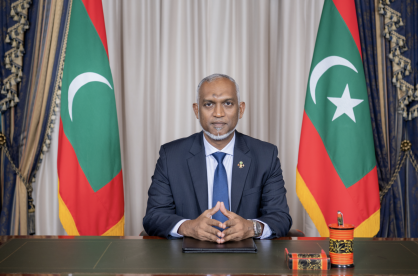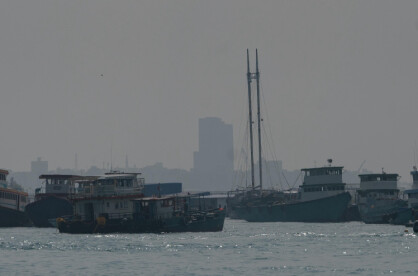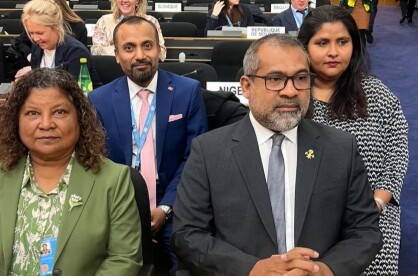In an optimal system, the three powers that run a country are clearly defined, boundaries are drawn, and checks and balances are in place. In an optimal situation, those in legislature do not need to be influenced by those in administration, and the judiciary should be the least partisan of all. However, in the Maldives there is a certain scheme in place, and it has been shown, time and time again, that to run a country efficiently, a parliament majority needs to be established. Yet this toxic arrangement is doomed to fail, and failure has always been inevitable.
To back this statement, it is helpful to cast one’s glance towards recent history. During the Nasheed administration stretching from 2009 to 2012, the parliament majority was in the hands of the opposition. Former President Nasheed faced countless challenges forced on him by a parliament where he did not have a majority. It eventually led to his downfall within two and a half years, in a convoluted set of events. Back then, politicians were only beginning to learn of a characteristic of Maldivian legislature that was unwittingly, or intentionally, embedded into the constitution; that of Parliament Supremacy.
The Yameen administration began its tenure in 2014 with a clear majority in parliament, and, however deplorable or genius, all of Yameen’s plans went on unhindered for quite a while. Infrastructure projects, plans to sell off an entire atoll to a foreign entity, and even the bridge, proceeded uncontested. Then came the sudden shift in parliament in 2017, with 12 members defecting and changing parties left and right.
The parliament had to sit an entire year without the members who had defected, because former President Yameen decided to pursue them through the judiciary. These 12 members were barred from entering the parliament, one thing led to another, a state of emergency was declared and the rest, as they say, is history.
The Solih administration appears to have learnt from its predecessor. In 2019 the MDP coalition achieved a parliament supermajority and their transition into power was seamless. Former President Nasheed succeeded in becoming the Speaker of Parliament and everything seemed rosy and in favour of the ruling party. Yet, somewhere along the line, divisions and factions cropped up within the party.
The breakdown of cohesion within the party did not take long to occur, and the general public keenly awaited to see which side would be successful in taking the largest bite of political influence in the Maldives. Influence is not always too obvious to see on the surface, yet when following turns of events, the picture becomes clearer. Speaker Nasheed seems to be teetering on the edge, and his gusto and heavy-handedness, which had brought him success in times past, appears to be failing him.
The parliament of the Maldives has always appeared to have quite a powerful say in both hindering and even dismantling the executive branch, yet this time this power did not translate entirely. In many instances it seemed that Speaker Nasheed was being sidelined, his unsolicited attempts at affecting governance ignored or swatted aside. True, a Speaker of Parliament does not determine the plans of an administration, and acts only as a vocaliser and mediator for the checks and balances function of legislature, yet even this privilege appears to have been taken away from him.
Earlier this month, President Ibrahim Mohamed Solih, at a press conference, said that having the support of the majority of parliament was important for a leader or president. While this statement blurred the lines of separation of power, it also showed the dependency that had been created between the executive and the legislature. Why did the President make such a statement with such conviction, and how did he manage to sway the majority away from the wildly popular Nasheed?
The answers to these questions come to light when considering how Yameen managed to turn the tide in his favour in 2014. His partner in this endeavour was Ahmed Adeeb, former minister and then short term vice president. MFR has done an exposé on his dealings and rise to power, and one aspect of this was the MMPRC embezzlement. When the money trail was unearthed, many members of parliament were alleged to have benefited from the scheme. The issue is still being debated, albeit conveniently delayed from reaching a justified conclusion. Yet it shows that a modicum of influence was placed on the parliament by the executive branch. One would hope such politics would be out of the picture with the changing of the guard. Instead it seems that the process just became a lot more elaborate.
The rift between the President and Speaker was most pronounced by the sudden move by Nasheed to attempt to oust Minister of Economic Development Fayyaz Ismail. Within five days, the President personally vouched for his Minister, and a month from then, the Minister stated that he had no intentions of resigning. Another month later, the motion of no-confidence left the parliament floor without a single signature.
Who is Fayyaz to the incumbent President? Why did he warrant personal backing from Solih compared to the rest of his cabinet, a few of them who had been pressured into resigning halfway into the term by the parliament? And what really is the ‘price’ of the Maldivian Parliament majority, for a leader to influence them even beyond the control of the Parliament Speaker?
Maldives' governance is a hugely flawed system. Reminiscent of street gangs giving protection to local business through racketeering, the parliament superiority is pressing down hard on the lifelines of the public by the ability to sabotage administrative capabilities if certain dues are not paid. The aforementioned argument is a cursory glance at the status quo, and viewing the administration’s actions with the formula used by the previous administration in mind. The price of holding sway over a parliamentary majority is high, but if it is to come to light that the price was paid entirely from the pockets of the tax payers, then the nation would be bled dry without even realising it.
More from MFR's 'Democracy hijacked' series;
Related stories;







